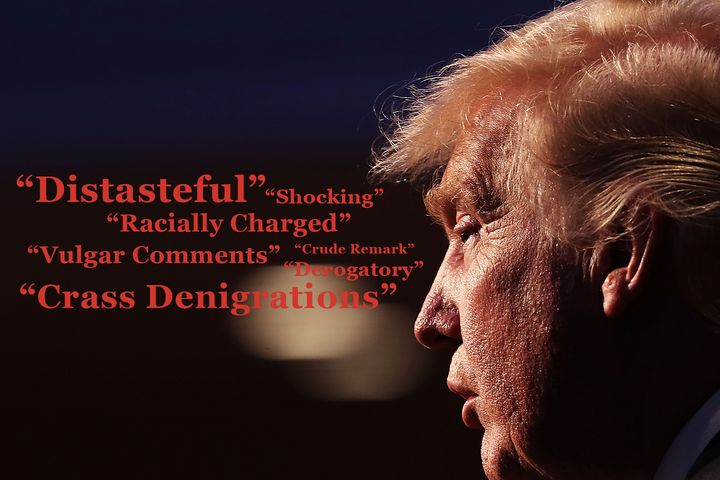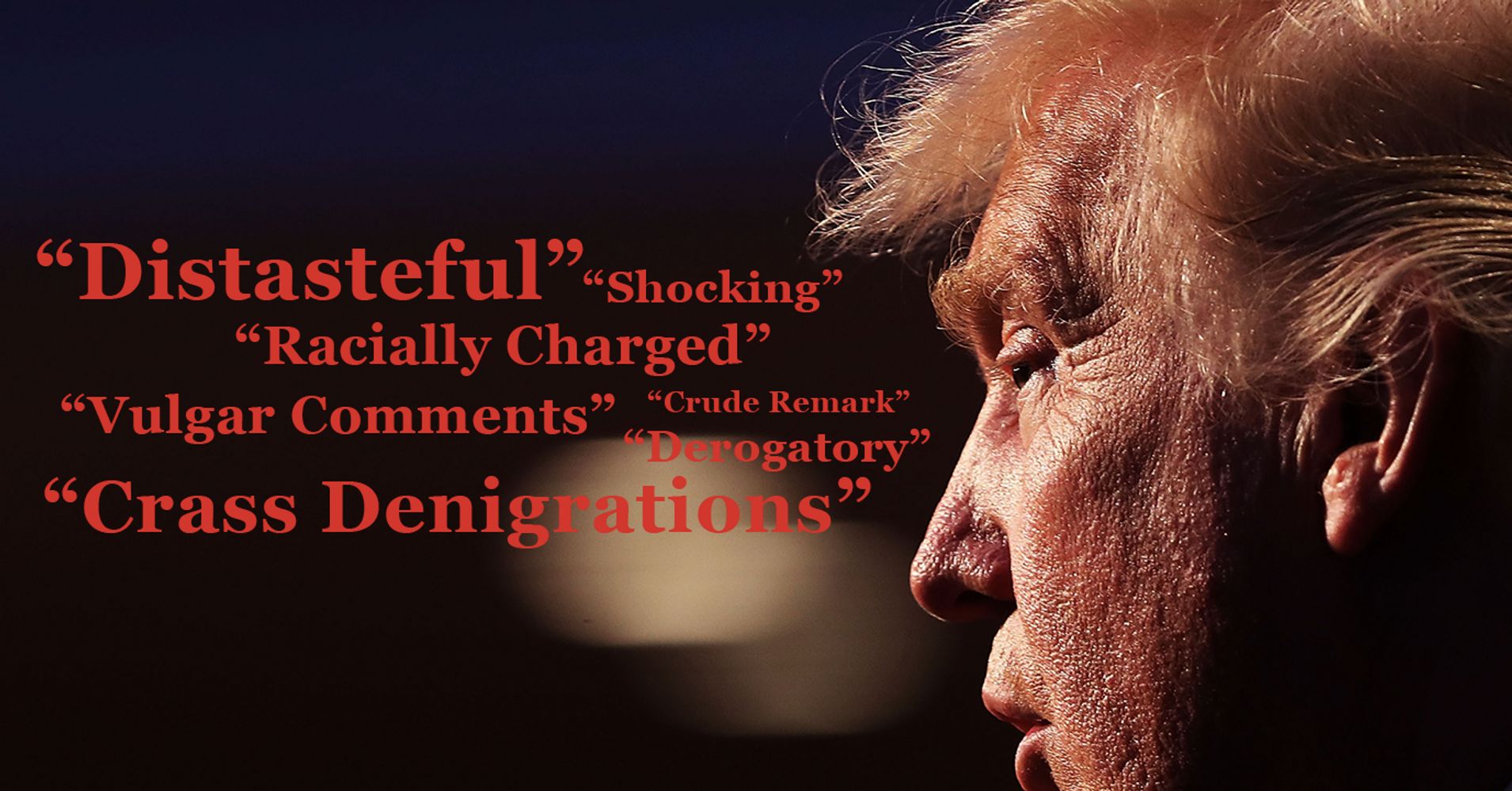[ad_1]
The president of the United States on Sunday called on four women of color in Congress — all of whom are U.S. citizens, and three of whom were born in the United States — to “go back and help fix the totally broken and crime infested places from which they came.”
Sickeningly familiar to likely every person of color, the phrase “go back to your country” (or variations of it) is racist, full stop. Not just “incendiary” or “inflammatory.” Racist.
But many media outlets, as they’ve done time and again, failed to call President Donald Trump’s comments what they were: racist.
Several, including the The Wall Street Journal and NPR, resorted to the tired euphemism of “racially charged.”

These kinds of phrases fail to make logical sense, and they falsely suggest that racism is on some kind of spectrum. Something or someone is either racist or not.
Earlier this year, “The Associated Press Stylebook,” a set of editorial standards to which many major news outlets, including HuffPost, adhere, revised its guidelines to warn against such euphemisms.
“Do not use ‘racially charged,’ ‘racially motivated,’ ‘racially tinged’ or similar terms as euphemisms for ‘racist’ or ‘racism’ when the latter terms are truly applicable,” the new guidelines say.
The AP stylebook also points out that using “racist” as a description “need not involve examining the motivation of the person who spoke or acted, which is a separate issue that may not be related to how the statement or action itself can be characterized.”
Many news outlets on Sunday stopped short of calling Trump’s comments racist by couching them as criticisms or allegations, often by citing the many Democrats who referred to Trump as racist.
The New York Times reported that his comments were “widely established as a racist trope” (and as CNN’s Brian Stelter pointed out, the Times story does not say by whom it was “established”).
NBC News similarly said that Trump’s comments were “denounced as racist.”
Instead of outright calling them racist, The Washington Post noted that House Speaker Nancy Pelosi (D-Calif.) “described them as racist and divisive,” along with other House Democrats and newly independent Rep. Justin Amash (Mich.), a frequent Trump critic who recently left the Republican Party because of Trump.
CBS News pointed to “critics who say his Twitter attacks on a group of Progressive Democratic lawmakers are racist” — instead of just reporting that the attacks are racist. The on-screen chyron during Monday’s “CBS This Morning” referred to the tweets as “racially-charged.”
The BBC’s original headline for its article labeled Trump’s tweets “racially charged,” before changing it to “Trump to congresswomen of colour: Leave the US.” As of Monday morning, the BBC still wasn’t actually calling Trump’s tweets racist, saying instead that president was “accused of racism” and citing some Democratic lawmakers who called Trump racist.
The Associated Press similarly noted the “searing condemnation from Democrats who labeled the remarks racist and breathtakingly divisive.”
Among other media outlets, CNN did call Trump’s tweets racist (though the headline for a video on the site still refers to the tweets as “racially charged,” and its initial segment on the tweets Sunday morning used the euphemism).
If there is any doubt about whether Trump is racist, this is the same person who, in 1973, was sued for racial discrimination; who, in 1989, called for executing five falsely convicted black and Latino teenagers; and who, in 2011, attempted to delegitimize America’s first black president by spreading the false conspiracy theory that he was not born in the U.S.
And that was all before his presidential campaign and his presidency. So, it’s long past time for news outlets ― and everyone else ― to call Trump what he is: a racist.
REAL LIFE. REAL NEWS. REAL VOICES.
Help us tell more of the stories that matter from voices that too often remain unheard.
[ad_2]
Source link

